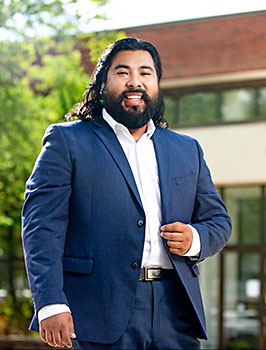
“We have to stop equating policing to public safety. These are not interchangeable terms. Public safety has its own priorities; certainly there will be times, when there will be bank robberies, times when violent crimes require police presence. So much of our public safety issues have nothing to do with the police,” said Mario Benavente, Council Person, District 3.
“Public Health is the science of reducing and preventing injury, diseases, and death; promoting health and well-being of populations through the use of data, research, effective policies, and practices…. addressing underlying causes of disease, injury before they occur, and promote healthy behaviors,” according to John Hopkins, Bloomberg School of Public Health.
The Public Health approach for preventing injury, diseases and death, is defining and monitoring the problem, identifying risk and protective factors, developing preventive strategies and ensuring widespread adaptation of effective strategies.
Firearms, gun violence, substance misuse, injuries, mental disorders, domestic abuse, reproductive and sexual health, food insecurity, infectious diseases, cancer, diabetes and environmental pollution are all Public Health issues.
Lisette Rodriguez, Shawn McMillian and Angela Malloy have been the boots-on-the-ground community leaders advocating for the Office of Community Safety in Fayetteville.
“Jada Johnson, a Fayetteville resident, died as a result of a police encounter on July 1, 2022. She was having a mental health crisis. She held the gun in her hand and threatened suicide. The event became deadly; officers were trying to get the gun from her hand. One of the officers shot and killed her.
“Our police department receives four thousand mental health calls per month. Which is a lot for a city of 200,000,” said Rodriguez.
Mental illness and substance misuse are deeply associated with public safety, “a new study looking at the years 2017 through 2019 finds one in nine of the arrests were a person grappling with mental health and substance misuse,” stated Josh McGhee.
Multiple studies have supported data that shows people with both substance misuse and mental disorders are grappling with homelessness, childhood trauma, sexual abuse and poverty, leaving them in circumstances requiring police presence.
Mental health disorders and substance misuse are also considered medical conditions. A substantial number of these individuals are cycling and recycling through the criminal justice system.
The Police presence has limited options for mental disorders, substance misuse, and co-occurrence of substance misuse and mental disorders. The police can arrest the person, take the person to the emergency room, or place the person in jail. The police officer does not have holistic options for the person.
One viable option is a mental health organization to serve as first responders for people with mental disorders and substance misuse.
“Stop trying to force the police to be the tool we use for everything. When we do this, it is that hammer that treats every single thing as a nail. Not all issues are nails to be dealt with, our young people do not need more interaction with the police. That is how you get the school to prison,” said Benavente.
A common first thought to address youth criminality is enhanced police presence, arrests, and incarceration. This action, using the medical model, addresses the experience of the disease. The public health model addresses the causes before the disease. It addresses the root causes to prevent or reduce the disease. The root causes are access to illicit substances, firearms, and alcohol, poverty, limited social and life skills, conflict management and anger management.
Youth incarceration is not the best option based on brain development research.
“The brain does not fully develop and gain maturity until the age of twenty-five. This is the neurological basis for the risky behaviors and questionable choices before the age of twenty-five. Research confirms majority of youth age out of law breaking," said Richard Mendel, The Sentencing Project.
Youth incarceration has a life-long negative impact on the physical and mental health of the individual: educational and employment opportunities are limited, and exposure to physical and sexual abuse. There can be challenges finding housing in nicer neighborhoods.
The Public Health approach to youth criminality is workshops addressing social development, life skills, anger management and conflict resolution. Pre-school programs for youth exist to acquire and develop academic and social skills. The first responders for mental disorders and substance misuse can be mental health and substance misuse organizations.
“It is not about defunding the police [or] putting them in every available building. It is about reducing the number of times citizens have to interact with law enforcement. What poor people need are resources,” said Benavente.
The Fayetteville Office of Community Safety provides mini-grants to community-based organizations and individuals. The grant is not available to for-profit enterprises. The awards are based on Conflict Resolution and Mediation, Community Crime Prevention, Opportunities for Youth/Parents/Families, Family Stability, Addressing Upward Mobility, and Implicit Bias and Diversity.
The City of Fayetteville will allocate fifty thousand dollars for four grant cycles. Contact FayettevilleNC.Gov/MicroGrants. Community and individual ideas are welcome to empower, strengthen and supply the resources for Fayetteville, the Can Do City. The deadline for mini-grant submission is Nov. 30 at 11:59 p.m.

 How to resolve AdBlock issue?
How to resolve AdBlock issue? 








